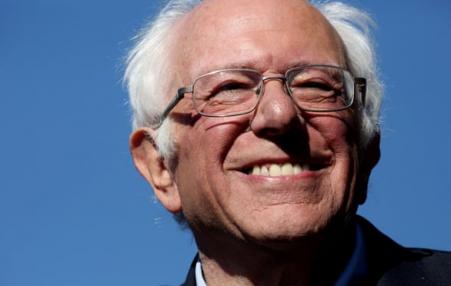Selective deficit hysteria has done immense damage.
By Paul Krugman
Make No Mistake: Medicare for All Would Cut Taxes for Most Americans Emmanuel Saez and Gabriel Zucman October 25, 2019 The Guardian Not only would universal healthcare reduce taxes for most people, it would also lead to the biggest take-home pay raise in a generation for most workers  Supporters of Medicare for All are Right, Yana Paskova/Reuters The debate about healthcare has been at the center of the Democratic primaries, yet it is hard to make sense of the conversation. For some, public universal health insurance – such as Bernie Sanders’s Medicare for All bill – would involve massive tax increases for the middle class. For others, it’s the opposite: Medicare for All would cut costs for most Americans. Who is right? The starting point of any intelligent conversation about health in America must be that it’s a cost for all of us – and a massive one. The United States spends close to 20% of its national income on health. Elderly Americans and low-income families are covered by public insurance programs (Medicare and Medicaid, respectively), funded by tax dollars (payroll taxes and general government revenue). The rest of the population must obtain coverage by a private company, which they typically get via their employers. Insurance, in that case, is funded by non-tax payments: health insurance premiums. Although they are not officially called taxes, insurance premiums paid by employers are just like taxes – but taxes paid to private insurers instead of paid to the government. Like payroll taxes, they reduce your wage. Like taxes, they are mandatory, or quasi-mandatory. Since the passage of the Affordable Care Act in 2010, it has become compulsory to be insured, and employers with more than 50 full-time workers are required to enroll their workers in a health insurance plan. A frequent objection to calling health insurance premiums a tax is that people have some choice. Can’t the poor, the argument goes, enroll in cheap health plans? If you start calling health insurance premiums a tax, then shouldn’t we also call spending on food and clothes a tax? This argument, however, is wrong, because cheap healthcare does not exist. There are cheap meals, there are cheap clothes, but there is no cheap way to treat your heart attack, to cure your cancer, or to give birth. Cheap health insurance means no healthcare when you need it. All wealthy nations, even those that try hard to control costs, spend 10% of their national income on health – the equivalent of $7,500 a year per adult in the United States. The view that healthcare services are like haircuts or restaurant meals – services for which there is a product tailored to any budget – is a myth. Healthcare is like education: everybody needs it, regardless of their budget, but it’s expensive. That’s why all advanced economies, except the United States, fund it through taxation. |